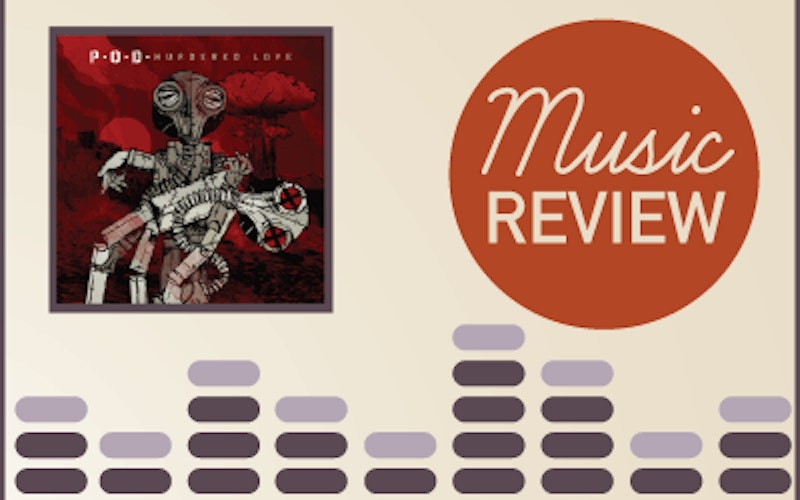
Music
POD's appropriate use of profanity
POD recently dropped a bomb on the rock world in the form of Murdered Love, their eighth studio album and first in four years.
This Howard Benson-produced project features the massive melodies, reggae-inspired rhythms, churning metal guitars and hardcore rap cadences that propelled this San Diego band from the Christian underground to the top of the mainstream rock charts over a decade ago. It also features some of the band’s most spiritually provocative lyrics yet. Sounding like an even more brutal and catchy version of their Fundamental Elements of Southtown and Satellite selves, POD has produced an album thatis inspirational, apocalyptic, evangelistic, profound and - to some people’s ears - profane.
Yes, profane. The album’s closing track, “I Am,” portrays the desperate inner turmoil of a soul trapped in pain, sin and confusion who is experiencing the dawning of the light of salvation and wondering if they are worth the effort. This pilgrim’s flesh recoils from the holiness of God. Lead vocalist Sonny Sandoval artfully captures the internal tension of spiritual rebirth in a way that is street-smart, culturally relevant and shocking. The lyric drops the F-bomb into the question, “Who are you?” (The word itself is conspicuously edited by a turntable scratch.) The choice makes perfect sense in this context and will likely turn the head of many of POD’s non-Christian fans as the band takes their proverbial gloves off in order to truthfully portray this dramatic moment. The song ends as the rhythmic churn slows, the defiance changes and the lyric quotes Revelation 21:5: “Behold I make all things new.” The tension resolves as the character surrenders and seemingly accepts the divine love on offer.
It’s an incredible rock-and-roll moment and a shining example of POD’s lingering power to speak truth to the often-nihilistic modern metal world. Still, many Christians won’t be able to get past the implied use of “profanity” and will miss everything this song has to offer. Case in point: copies sold in Christian bookstores omit this closing track entirely.
Murdered Love is inspirational, apocalyptic, evangelistic, profound and, to some people’s ears, profane.
The whole of Murdered Love is not this intense. The band makes time for many different purposes under heaven. They get more melodic than ever on “Higher” and “Lost in Forever.” They get all silly with local pride on the funky “West Coast Rock Steady.” They do the atmospheric ballad thing perfectly on “Beautiful” and let their reggae-rap freak flags fly on “Babylon the Murderer” and “Panic and Run.” They even get romantic in an oddly self-deprecating way on “Bad Boy” and downright creepy on the title track. Everything that any fan ever loved about POD can be found here in fine form. All told Murdered Love is the most balanced and consistently excellent project by POD yet, and that’s saying something.
In Ecclesiastes, God tells us that there is a time and a place for every purpose under heaven. In Philippians 3:8, Paul refers to everything in his life as “skubalon” compared to the far greater value of knowing Christ. Polite Bible translators may have chosen manners over accuracy when they used the word “rubbish” instead of the slang term for human excrement that Paul seems to have intended. On Murdered Love, POD joins a long list of important Christian artists (Bono, Bruce Cockburn, Michael Been) who have not been afraid to use strong language when it is called for. Fortunately their status as a mainstream rock act means they can at least call it like they see it. Murdered Love may not be “safe for the whole family,” as some define safety, but it is good and true.
What Do You Think?
- Have you heard Murdered Love? How does it compare to POD's other albums?
- Do you find the lyrics in "I Am" offensive or instructive?
- When should Christian artists be able to use profanity as a tool?
Topics: Music, Culture At Large, Arts & Leisure